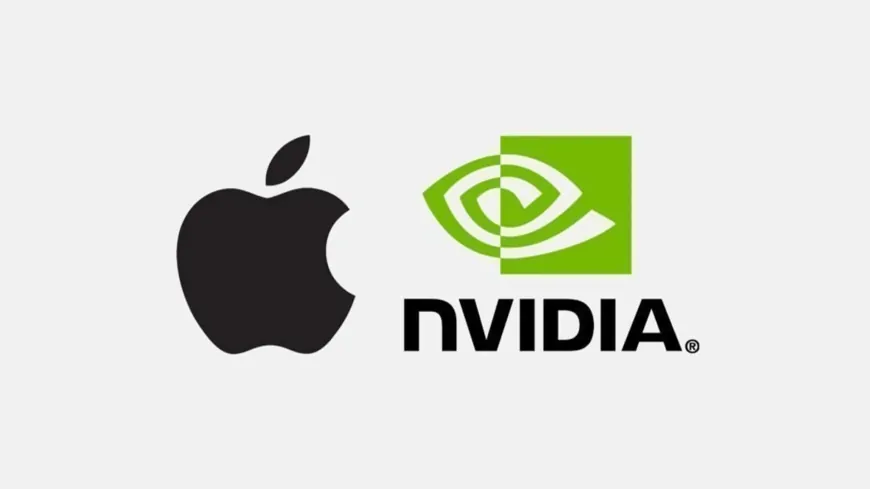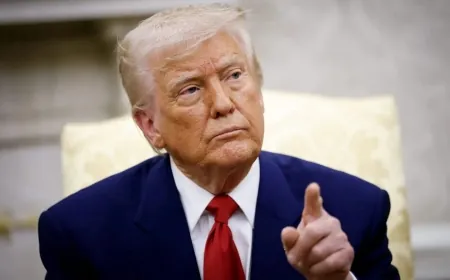Apple and Nvidia Get Tariff Relief—iPhones, Laptops, and Chips Avoid Price Hike
US exempts smartphones, laptops, and semiconductor equipment from steep tariffs, easing pressure on consumers and tech companies—though future policy changes are still possible

Apple, Nvidia, and other major technology companies are getting a temporary reprieve as the US government exempts several key electronic products from the latest wave of tariffs. The decision, issued by US Customs and Border Protection and backdated to April 5, removes new tariff burdens from a wide range of imported consumer electronics and manufacturing tools.
The exemptions cover products like smartphones, laptops, memory chips, computer processors, hard drives, and flat-screen displays. These items were previously included in tariffs of up to 125% on goods from China and a 10% general tariff affecting imports from most other countries. Most of these products are not manufactured in the United States, which had raised concerns about cost increases for both companies and consumers.
Consumers and Companies Get Breathing Room
For many Americans, the announcement means they won’t see immediate price hikes on phones, laptops, and other everyday tech. Some had rushed to make purchases in recent weeks, worried that tariffs could push prices higher. For Apple, whose iPhones and iPads are assembled primarily in China, the exemption helps avoid supply chain disruptions and potential pricing issues in the short term.
Nvidia also stands to benefit, especially as it continues to ramp up production of high-performance graphics chips for AI applications. Many of the servers and components that support AI infrastructure are built in countries like Taiwan and Mexico, both of which are covered under the exemption.
Affected Imports Total Nearly $400 Billion
According to 2024 trade data, the exclusions impact approximately $390 billion in US imports, including more than $100 billion from China. Smartphones alone made up over $41 billion in imports from China last year, and computers accounted for another $36 billion. Together, the exempted electronics represented about 22% of total Chinese imports to the US in 2024.
These categories play a central role in both consumer markets and business operations. Their exclusion from the new tariffs may help maintain stability in areas such as cloud computing, data centers, and software development—sectors that rely heavily on high-performance hardware.
Semiconductor Equipment Included in Exemptions
Beyond consumer tech, the exemptions also apply to machines used in semiconductor manufacturing—equipment often produced by companies like ASML in the Netherlands and Tokyo Electron in Japan. These tools are critical to building chip production facilities in the US.
Firms like TSMC, Intel, and Samsung have all announced large investments in new chip plants, supported in part by funding from the 2022 Chips and Science Act. Without these tools, their timelines and budgets would face significant challenges.
This decision helps clear a path for these projects to move forward without sudden cost increases on essential manufacturing equipment. It also aligns with ongoing efforts to expand domestic chip production and reduce dependency on overseas supply chains for critical components.
Temporary Relief Amid Ongoing Trade Tensions
While the exemptions are significant, they do not represent a change in long-term trade direction. The White House has indicated that these products may still face tariffs under future measures that are more narrowly focused on certain industries, such as semiconductors.
A new investigation into imported chips is already underway and could lead to additional duties not just on the semiconductors themselves, but also on products that contain them. Industry insiders expect further announcements in the coming weeks or months.
Additionally, the exemption does not apply to the separate 20% tariff introduced to pressure China on issues related to fentanyl. Nor does it roll back earlier tariffs from previous trade rounds. Many categories of Chinese goods—particularly industrial and capital equipment—remain subject to elevated duties.
Apple and Other Firms Still Face Long-Term Questions
Although this move helps ease immediate concerns, companies like Apple remain in a delicate position. Unlike competitors such as Samsung, which manufactures much of its hardware outside of China, Apple is still heavily reliant on Chinese assembly lines. Relocating final production for products like the iPhone is not a quick or simple task, despite pressure from policymakers to reduce overseas dependencies.
Tech industry groups and corporate lobbyists have warned that making rapid changes to global supply chains could be costly and inefficient, especially when much of the required infrastructure still resides overseas.
The pause in tariffs gives companies some time to manage production planning without the added strain of new taxes. But the situation remains fluid, and further changes to US trade rules could arrive at any time. Businesses in the tech sector will need to remain alert as discussions in Washington continue.
Also Read: Trump Prepares Next Tariff Moves as Global Trade Tensions Heat Up
































































